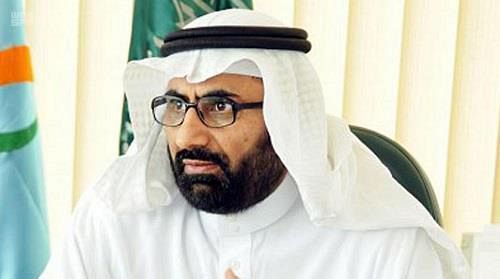
JEDDAH/MAKKAH: The Public Prosecutor and the lawyers of those convicted intend to file an appeal against the preliminary rulings in the Khashoggi case announced on Monday.
Prosecution sources confirmed to Arab News that both parties intend to challenge the rulings and will move to appeal in the coming days.
Five of the 11 on trial have been sentenced to death over the murder of Saudi journalist Jamal Khashoggi; three others sentenced to varying prison terms and the remaining three were acquitted. Afterwards the Public Prosecution stated that the investigation and due process were concluded and, those sentenced could appeal the Riyadh criminal court’s ruling.
Legal experts said that Saudi Arabia’s judicial procedures were conducted with full transparency and in full view of international representatives.
“Delegates from the embassies of the five permanent members of the (UN) Security Council (China, France, Russia, the UK, and the US) in addition to a representative from the Turkish embassy, attended the sessions held in the murder trial,” said Shaalan Al-Shaalan, spokesperson for the Prosecutor General.
Dr. Awwad Al-Awwad, Head of the Saudi Human Rights Commission, said: “All their (the defendants) rights have been guaranteed by the Kingdom’s regulations that are in line with international standards for a fair trial.”
The Saudi judicial system allows 30 days from the date of sentencing for an appeal to be filed.
Dimah Al-Sharif, a lawyer and legal consultant at Garoub and Associates told Arab News that the Courts of first instance provides the Courts of Appeal with the petitioner’s notice of appeal where the next stage commences with gathering the information, legal arguments, views facts and evidence from the first trial for consideration.
“The Courts of Appeals will review all the evidence and documents before referring back to the Courts of first instance if and when there are any queries or request for explanations,” she said. “Inquiries could vary from questions on the legal basis of their rulings to the basis of their arguments. The Courts of Appeal’s judgement on the case could go either way, either it can affirm the lower court’s judgment hence ending the case and the lower court’s decision stands, or reverse the judgement and send the case back to the lower court, allowing the petitioner’s case to go to a new trial. Sometimes, the court ruling may be annulled partly or in its totality, and the case may be referred back for a new trial.”
According to the Saudi judicial system, there is one or more courts of appeal in each region of the Kingdom. Dubbed as “Second Degree Courts”, they review verdicts issued by Courts of first instance, that are subject to appeal, within their respective jurisdiction.
Meanwhile, legal consultant Dr. Muhammad Al-Mahmoud told Arab News that the issued judgements are preliminary, can be appealed and were issued by three judges. If the Prosecutor General or the lawyers request an appeal, the case will be referred to the Court of Appeals where five judges with higher ranks will look into the case.
Dr. Mishal Al-Ali, a geopolitical expert, said: “As the accused still have the right to file an appeal, their names were not mentioned because the judgments issued against them were not binding and final. The Prosecutor General proved that the Saudi judiciary system is supreme, that the law is above all and that judgments were issued after deliberations, scrutiny of evidence and investigations.”
If the five judges of appeals decide unanimously to sentence the five convicted persons to death, the sentence will be referred to the Supreme Court where another five judges will look into it. Therefore, the total number of judges who reviewed the case is 13, and they must unanimously agree on the death sentence as the Kingdom views death sentence as a penalty that should not be taken lightly and therefore the Kingdom takes carefully all the circumstances into consideration before making a death sentence.
Al-Sharif explained that the new regulation of the Courts of Appeals states that the appeal can be either a pleading in the presence of the litigants or through scrutinizing the submitted memorandums only.
To avoid the long litigation period, Al-Sharif explained that the regulation clarified matters related to auditing the appeal judgments without pleading, as its provisions stressed that appeals courts must rule within 20 days of all cases, and 10 days in urgent cases.
Al-Ali said the trials took place without the Kingdom being influenced by any outside actors, parties or organizations. He added that the Kingdom’s justice authorities enjoyed full independence and transparency and that the accused were made fully aware of the entire legal process.
Khalid Abu Rashed, a lawyer, said the trial reflects the Kingdom’s constant position that the jurisdiction remains the Kingdom’s exclusive right because the crime was committed on a Saudi territory: the Saudi Consulate in Istanbul, which is considered by international law as a Saudi territory.
Al-Awwad said the commission attended all the court sessions related to this trial and that it had followed due course, in light of the Kingdoms relevant regulations, including the basic system of government, the criminal procedure system, the Sharia appeals system, executive regulations, as well as the Kingdoms obligations under regional and international human rights agreements and other relevant international standards.












